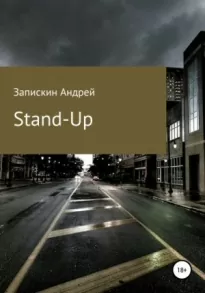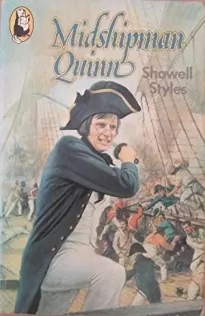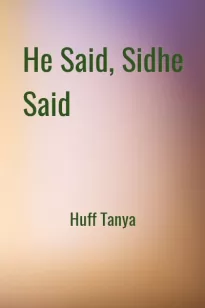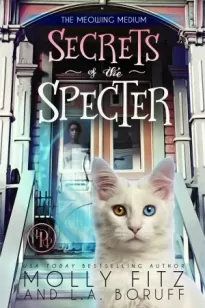RED SYMPHONY
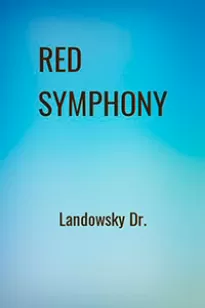
- Автор: Dr. Landowsky
- Жанр: Старинная литература
Читать книгу "RED SYMPHONY"
I ordered the guard to leave and told him to bring me a chair.
{p. 7} I sat down and asked the prisoner to sit. He was about 50 years old. He was a man of medium height, bald in front, with a large, fleshy nose. In youth his face was probably pleasant. His facial outlines were not typically semitic, but his origin was nevertheless clear. Once upon a time he was probably quite fat, but not now, and his skin hung everywhere, while his face and neck were like a burst balloon, with the air let out. The usual dinner at the Lubianka was apparently too strict a diet for the former Ambassador in Paris. At that moment I made no further observations.
"You smoke?" I asked, opening the cigarette case, with the intention of establishing somewhat more intimate relations with him.
"I gave up smoking in order to preserve my health" he replied with a very pleasant tone of voice, "but I thank you; I think I have now recovered from my stomach troubles."
He smoked quietly, with restraint and not without some elegance.
"I am a doctor" I introduced myself.
"Yes I know that; I saw how you acted 'there' " he said with trembling voice.
"I came to enquire about the state of your health. How are you ? Do you suffer from any illness?"
"No, nothing."
"Are you sure? What about your heart?"
"Thanks to the results of enforced dieting I do not observe in myself any abnormal symptoms."
"There are some which cannot be noticed by the patient himself, but only by a doctor."
"I am a doctor" he interrupted me.
"A doctor?" I repeated in surprise.
"Yes, didn't you know?"
"Nobody had told me of it. I congratulate you. I shall be very glad to be of use to a colleague and, possibly, a fellow student. Where did you study? In Moscow or Petrograd?"
"Oh no! At that time I was not a Russian subject. I studied in Nancy and Montpellier; in the latter I received my doctorate."
"This means that we may have studied at the same time; I did several courses in Paris. Were you French?"
"I intended to become French. I was born a Bulgarian, but without asking my permission I was converted into a Rumanian. My province was Dobrudga, where I was born, and after the peace treaty it went to Rumania."
"Permit me to listen to your chest" - and I put the stethoscope in my ears.
He took off his torn jacket and stood up. I listened. The examination shewed nothing abnormal; as I had assumed, weakness, but without defects.
"I suppose one must give food for the heart."
"Only the heart, comrade?" he asked ironically.
{p. 8} "I think so" I said, pretending not to have noticed the irony, "I think your diet, too, should be strengthened."
"Permit me to listen to myself."
"With pleasure" - and I gave him the stethoscope.
He quickly listened to himself.
"I had expected that my condition would be much worse. Many thanks. May I put my jacket on?"
"Of course. Let us agree, then, that it is necessary to take a few drops of digitalis, don't you think?"
"You consider that absolutely essential? I think that my old heart will survive the few days or months which remain to me quite well."
"I think otherwise; I think that you will live much longer."
"Do not upset me, colleague ... To live more! To live still longer! ... There must be instructions about the end; the court case cannot last longer... And then, then rest."
And when he said this, having in mind the final rest, it seemed that his face had the expression of happiness almost. I shuddered. This wish to die, to die soon which I read in his eyes, made me faint. I wanted to cheer him up from a feeling of compassion.
"You have not understood me, comrade. I wanted to say that in your case it may be decided to continue your life, but life without suffering. For what have you been brought here? Does one not treat you well now?"
"The latter, yes, of course. Concerning the rest I have heard hints, but ..."
I gave him another cigarette and then added:
"Have hope. For my part and to the extent which my chief will allow, I shall do everything that can depend on me, to make sure that you come to no harm. I shall begin immediately by feeding you, but not excessively, bearing in mind the state of your stomach. We shall begin with a milk diet and some more substantial additions. I shall give instructions at once. You may smoke ... take some ... " and I left him everything that remained in the packet.
I called the guard and ordered him to light the prisoner's cigarette whenever he wants to smoke. Then I left and before having a couple of hours rest I gave instructions that Rakovsky was to have half a litre of milk with sugar.
* * *
We prepared for the meeting with Rakovsky at midnight. Its "friendly" character was stressed in all the details. The room was well warmed, there was a fire in the fire-place, soft lighting, a small and well-chosen supper, good wines; all had been scientifically improvised. "As for a lovers meeting," observed Gabriel. I was to assist. My chief responsibility was to give the prisoner the drug in such a manner that he would not notice it. For this purpose the drinks had been placed as if by chance near me, and I shall have to pour out the wine. Also I would have to observe the weakening of the drug's effect, so as to give a new dose at the right moment. This was my most important job. Gabriel wants, if the experiment succeeds, to get already at the first meeting real
{p. 9} progress towards the essence of the matter. He is hopeful of success. He has had a good rest and is in good condition. I am interested to know how he will struggle with Rakovsky who, it seems to me, is an opponent worthy of him.
Three large arm-chairs were placed before the fire. The one nearest the door is for me, Rakovsky will sit in the middle, and in the third will be Gabriel, who had shown his optimistic mood even in his clothes, as he was wearing a white Russian shirt.
It had already struck midnight when they brought the prisoner to us. He had been given decent clothes and had been well shaved. I looked at him professionally and found him to be livelier.
He asks to be excused for not being able to drink more than one glass, mentioning the weakness of his stomach. I did not put the drug into this glass and regretted it.
The conversation began with banalities ... Gabriel knows that Rakovsky speaks much better French than Russian and begins in that language. There are hints about the past. It is clear that Rakovsky is an expert conversationalist. His speech is exact, elegant and even decorative. He is apparently very erudite; at times he quotes easily and always accurately. Sometimes he hints at his many escapes, at exile, about Lenin, Plekhanov, Luxemburg, and he even said that when he was a boy he had shaken the hand of the old Engels.
We drink whisky. After Gabriel had given him the opportunity of speaking for about half an hour, I asked as if by chance: "Should I add more soda water?" "Yes, add enough" he replied absentmindedly. I manipulated the drink and dropped a tablet into it, which I had been holding from the very beginning. First I gave Gabriel some whisky, letting him know by a sign that the job had been done. I gave Rakovsky his glass and then began to drink mine. He sipped it with pleasure. "I am a small cad" I told myself. But this was a passing thought and it dissolved in the pleasant fire in the fire-place.
Before Gabriel came to the main theme, the talk had been long and interesting.
I had been fortunate in obtaining a document which reproduces better than a shorthand note all that had been discussed between Gabriel and Rakovsky. Here it is:
INFORMATION
THE QUESTIONING OF THE ACCUSED CHRISTIAN GEORGIEVITCH RAKOVSKY BY GAVRIIL GAVRIILOVITCH KUS'MIN ON THE 26TH JANUARY, 1938.
Gavriil G. Kus'min. In accordance with our agreement at the Lubianka, I had appealed for a last chance for you; your presence in this house indicates that I had succeeded in this. Let us see if you will not deceive us.
Christian G. Rakovsky. I do not wish and shall not do that.
G. - But first of all: a well-meant warning. Now we are concerned with the real truth. Not the "official" truth, that which is to figure at the trial in the light of the confessions of the accused ... This is something which, as you know, is fully subject to practical considerations, or "considerations of State" as they would say in the West. The
{p. 10} demands of international politics will force us to hide the whole truth, the "real truth" ... Whatever may be the course of the trial, but governments and peoples will only be told that which they should know. But he who must know everything, Stalin, must also know all this. Therefore, whatever may be your words here they cannot make your position worse. You must know that they will not worsen your crime but, on the contrary, they can give the desired results in your favour. You will be able to save your life, which at this moment is already lost. So now I have told you this, but now let us see: you will all admit that you are Hitler's spies and receive wages from the Gestapo and OKW* {footnote}.
Is that not so?
R. - Yes.
G. - And you are Hitler's spies?
R. - Yes.
G. - No, Rakovsky, no. Tell the real truth, but not the court proceedings one.
R. - We are not spies of Hitler, we hate Hitler as you can hate him, as Stalin can hate him; perhaps even more so, but this is a very complex question.
G. - I shall help you ... By chance I also know one or two things. You, the Trotzkyists, had contacts with the German Staff. Is that not so ?
R. - Yes.
G. - From which period?
R. - I do not know the exact date, but soon after the fall of Trotzky. Of course before Hitler's coming to power.
G. - Therefore let us be exact: you were neither personal spies of Hitler, nor of his regime.
R. - Exactly. We were such already earlier.
G. - And for what purpose? With the aim of giving Germany victory and some Russian territories?
R. - No, in no case.
G. - Therefore as ordinary spies, for money?
R. - For money? Nobody received a single Mark from Germany. Hitler has not enough money to buy, for example, the Commissar for Foreign Affairs of the USSR, who has at his disposal freely a budget which is greater than the total wealth of Morgan and Vanderbilt, and who does not have to account for his use of the money.
G. - Well, then for what reason?
R. - May I speak quite freely?
G. - Yes, I ask you to do so; for that reason you have been invited.
R. - Did not Lenin have higher aims when he received help from Germany in order to enter Russia? And is it necessary to accept as true those libellous inventions which had been circulated to accuse him? Was he not also called a spy of the Kaiser? His relations with the Emperor and the German intervention in the affair of the sending to Russia of the Bolshevik destroyers are quite clear.
{footnote} * OKW - Oberkommando der Wehrmacht, Supreme Command of the German Army - Transl. {end footnote}
{p. 11} G. - Whether it is true or not does not have any bearing on the present question.
R. - No, permit me to finish. Is it not a fact that the activity of Lenin was in the beginning advantageous to the German troops? Permit me ... There was the separate peace of Brest-Litovsk, at which huge territories of the USSR were ceded to Germany. Who had declared defeatism as a weapon of the Bolsheviks in 1913? Lenin. I know by heart his words from his letter to Gorky: "War between Austria and Russia would be a most useful thing for the revolution, but it is hardly possible that Francis-Joseph and Nicholas would present us with this opportunity." As you see, we, the so-called Trotzkyists, the inventors of the defeat in 1905, continue at the present stage the same line, the line of Lenin.
G. - With a small difference, Rakovsky; at present there is Socialism in the USSR, not the Tsar.
R. - You believe that?
G. - What?
R. - In the existence of Socialism in the USSR?
G. - Is the Soviet Union not Socialist?
R. - For me only in name. It is just here that we find the true reason for the opposition. Agree with me, and by the force of pure logic you must agree, that theoretically, rationally, we have the same right to say - no, as Stalin can say - yes. And if for the triumph of Communism defeatism can be justified, then he who considers that Communism has been destroyed by the bonapartism of Stalin and that he betrayed it, has the same right as Lenin to become a defeatist.
G. - I think, Rakovsky, that you are theorizing thanks to your manner of making wide use of dialectics. It is clear that if many people were present here, I would prove this; all right, I accept your argument as the only one possible in your position, but nevertheless I think that I could prove to you that this is nothing other than a sophism. But let us postpone this for another occasion; some day it will come. And I hope that you will give me the chance to reply. But at the present moment I shall only say this: if your defeatism and the defeat of the USSR has as its object the restoration of Socialism in the USSR, real Socialism, according to you - Trotzkyism, then, insofar as we have destroyed their leaders and cadres, defeatism and the defeat of the USSR has neither an objective nor any sense. As a result of defeat now there would come the enthronement of some Führer or fascist Tsar. Is that not so?
R. - It is true. Without flattery on my part - your deduction is splendid.
G. - Well, if, as I assume, you assert this sincerely, then we have achieved a great deal: I am a Stalinist and you a Trotzkyist; we have achieved the impossible. We have reached the point at which our views coincide. The coincidence lies in that at the present moment the USSR must not be destroyed.
R. - I must confess that I had not expected to face such a clever person. In fact at the present stage and for some years we cannot think of the defeat of the USSR and to provoke it, as it is known that we are at present in such a position, that we can not seize power. We, the Communists, would derive no profit from it. This is exact and coincides
{p. 12} with your view. We can not be interested now in the collapse of the Stalinist State; I say this and at the same time I assert that this State, apart from all that has been said, is anti-Communistic. You see that I am sincere.
G. - I see that. This is the only way in which we can come to terms. I would ask you, before you continue, to explain to me that which seems to me a contradiction: if the Soviet State is anti-Communistic to you, then why should you not wish its destruction at the given moment? Someone else might be less anti-Communistic and then there would be fewer obstacles to the restoration of your pure Communism.
R. - No, no, this deduction is too simple. Although the Stalinist bonapartism also opposes Communism as the napoleonic one opposed the revolution, but the circumstance is clear that, nevertheless, the USSR continues to preserve its Communistic form and dogma; this is formal and not real Communism. And thus, like the disappearance of Trotzky gave Stalin the possibility automatically to transform real Communism into the formal one, so also the disappearance of Stalin will allow us to transform his formal Communism into a real one. One hour would suffice for us. Have you understood me?
G. - Yes, of course; you have told us the classical truth that nobody destroys that which he wants to inherit. Well, all right; all else is sophistical agility. You rely on the assumption which can be easily disproved: the assumption of Stalin's anti-Communism. Is there private property in the USSR? Is there personal profit? Classes? I shall not continue to base myself on facts - for what?
R. - I have already agreed that there exists formal Communism. All that you enumerate are merely forms.
G. - Yes? For what purpose? From mere obstinacy?
R. - Of course not. This is a necessity. It is impossible to eliminate the materialistic evolution of history. The most that can be done is to hold it up. And at what a price? At the cost of its theoretical acceptance, in order to destroy it in practice. The force which draws humanity towards Communism is so unconquerable that that same force, but distorted, opposed to itself, can only achieve a slowing down of development; more accurately - to slow down the progress of the permanent revolution.
G. - An example?
R. - The most obvious - with Hitler. He needed Socialism for victory over Socialism: it is this his very anti-Socialist Socialism which is National-Socialism. Stalin needs Communism in order to defeat Communism. The parallel is obvious. But, notwithstanding Hitler's anti-Socialism and Stalin's anti-Communism, both, to their regret and against their will, transcendentally create Socialism and Communism ...; they and many others. Whether they want it or not, whether they know it or not, but they create formal Socialism and Communism, which we, the Communist-Marxists, must inevitably inherit.
G. - Inheritance? Who inherits? Trotzkyism is completely liquidated.
R. - Although you say so, you do not believe it. However great may be the liquidations, we Communists will survive them. The long arm of
{p. 13} Stalin and his police cannot reach all Communists.
G. - Rakovsky, I ask you, and if necessary command, to refrain from offensive hints. Do not go too far in taking advantage of your "diplomatic immunity."
R. - Do I have credentials? Whose ambassador am I?
G. - Precisely of that unreachable Trotzkyism, if we agree to call him so.
R. - I cannot be a diplomat of Trotzkyism, of which you hint. I have not been given that right to represent it, and I have not taken this role on myself. You have given it to me.
G. - I begin to trust you. I take note in your favour that at my hint about this Trotzkyism you did not deny it. This is already a good beginning.
R. - But how can I deny it? After all, I myself mentioned it.
G. - Insofar as we have recognized the existence of this special Trotzkyism by our mutual arrangement, I want you to give definite facts, which are necessary for the investigation of the given coincidence.
